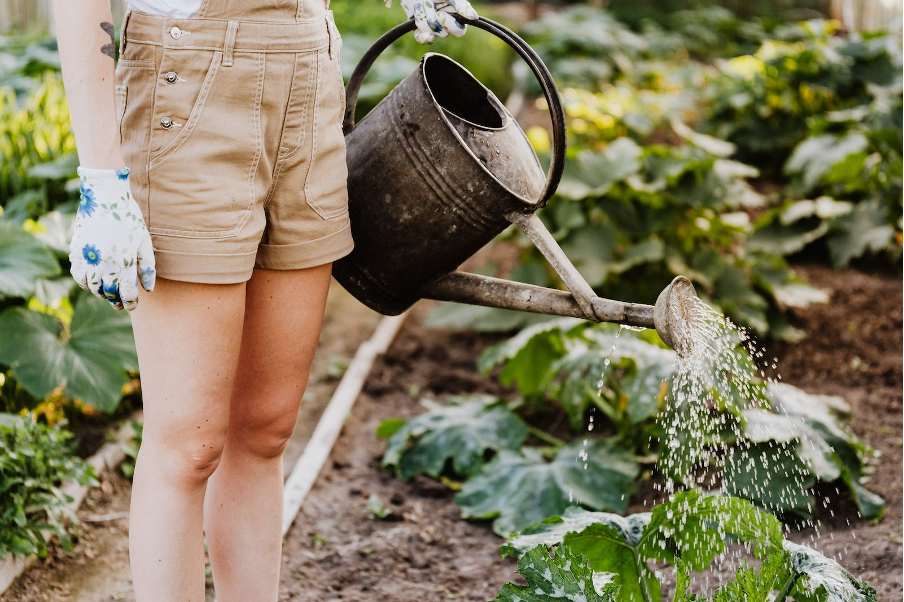If you’re like most gardeners, you’ve spent countless hours tending to your gardens and plants. You have dedicated time and energy to making sure that everything looks beautiful. But did you know that having a healthy garden isn’t just about what it looks like? Healthy gardening requires attention to the soil, water, sunlight, and other environmental conditions in order for your plants to grow properly when cared for correctly.
1. Maintain Your Trees
Trees are the backbone of any garden, so it is important to maintain them in order for your overall garden environment to stay healthy. Make sure that your trees get enough water and sunlight. Prune them regularly and remove dead branches or foliage to prevent disease. Additionally, check for signs of pests or fungus on your trees as these can cause serious damage if not treated quickly. According to https://www.treeservicessacramento.org/fair-oaks/, it is also important to fertilize your trees with organic matter, such as compost and mulch. If necessary, consult a professional arborist to ensure that your trees are healthy and safe.
2. Test Your Soil and Improve it Regularly
Testing your soil is key to keeping your garden healthy. You’ll want to know its pH level, calcium levels, and overall nutrient content in order to ensure that your plants have the necessary resources for optimal growth. Testing can be done manually or with a soil probe—a machine that tests all of these values at once. Once you’ve tested your soil, adjust accordingly with amendments such as lime, compost, fertilizer, and more depending on what results you find. Doing this regularly will help create an ideal environment for successful gardening! While soil testing may seem like a chore, this activity is key to having a healthy garden.
3. Water Wisely
One way to keep your garden healthy is to water it wisely. While it’s essential for plants to get enough water, overwatering can be detrimental. Overwatering not only wastes water but also encourages root rot and fungal diseases in many plants. To ensure that you don’t overwater, always check the soil before watering and only add extra if needed. Additionally, try using a timer or soaker hose system to make sure that you are providing just the right amount of water for optimal growth. Lastly, consider collecting rainwater with barrels or other containers as a natural source of moisture for your garden.
4. Use Natural Pest Control
Keeping your garden healthy does not have to involve using harsh chemical treatments. Natural pest control options can help you keep pests away from your plants without harming the environment. Consider using compost tea, companion planting, and natural predators such as ladybugs, geckos, or spiders to keep pests away. You can also make organic sprays that use ingredients like garlic and peppermint oil to deter bugs. These techniques are effective and will help ensure that your garden remains healthy for years to come.
5. Keep Weeds at Bay
Weeds are one of the greatest enemies of your garden’s health. Not only can they rob your plants of nutrients, water, and sunlight, but they can also create an environment favorable to pests and diseases. To keep weeds at bay, you can hand-pull them or use a hoe to dig them out by their roots. You may also choose to mulch around your plants in order to choke out weeds and retain moisture. Additionally, applying a pre-emergent weed killer or using landscape fabric or plastic sheeting before sowing seeds or planting seedlings can help reduce the number of weed seedlings that emerge.
6. Practice Crop Rotation
Crop rotation is an important technique for keeping your garden healthy. This involves planting different crops in the same area each year, to prevent pests and diseases from settling in one part of your garden. By rotating crops, you can also replenish soil nutrients that have been depleted by previous plants. To practice crop rotation, plan out which vegetables will be planted in the different parts of your garden before you start planting. Choose varieties that are well-suited to the particular soil conditions of your area and take into account their nutrient needs as well.

Keeping your garden healthy requires a bit of effort, but the rewards are worth it. By following these tips, you can ensure that your plants are getting the necessary nutrients and care to stay healthy for years to come. Regular testing and amending of soil, sensible watering habits, natural pest control methods, weed maintenance, and crop rotation should all be part of your routine in order to ensure the health and well-being of your garden. With a bit of effort, you can have a beautiful and healthy garden.

